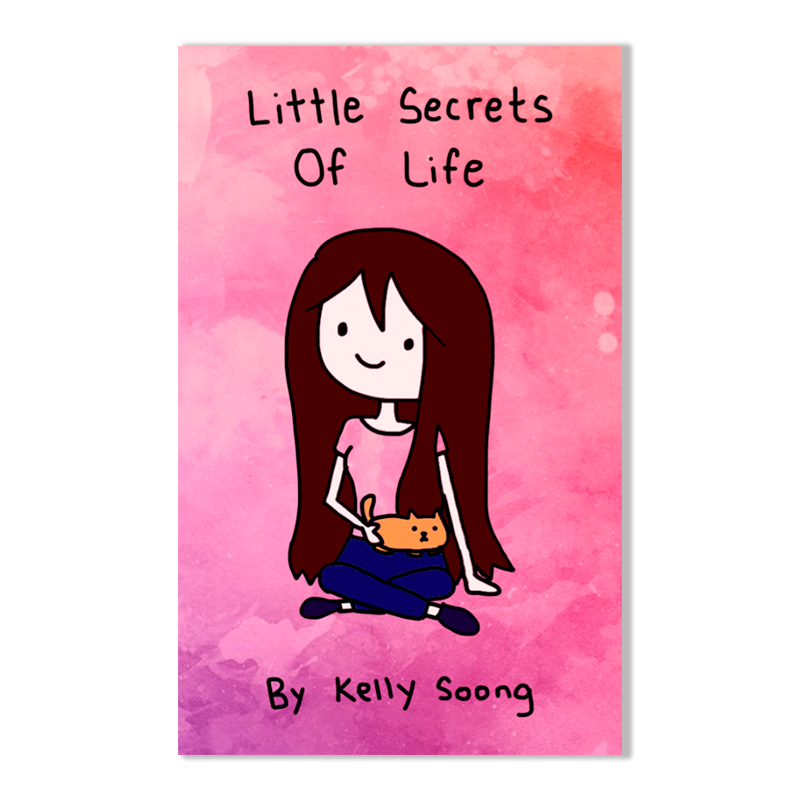Do you get angry easily? This might be the reason.

Someone has taken advantage of you. Someone has wronged you. You get really mad at them. People tell you that it is over and it is not worth it to cry over spilled milk. Yet, you are not over it. You try to bottle up the anger within you, but it did not work. One day, you burst into tears out of the blue, due to the negative emotions buried inside you for months, or even years.
Prolong anger is like poison if we do not handle it properly. It eats your life away. It might not only affect you mentally, but also physically, causing symptoms such as backache, migraine, fatigue and much more. When we are extremely furious, especially at someone who has done us wrong, we have negative thoughts screaming in our minds, hoping that the person who has hurt us will die and suffer. We might even think of revenge. Ironically, when we have thoughts like this, it always backfires. Instead of making the person who made us angry suffer, we are suffering and tormenting ourselves with these negative thoughts all this while.
“Holding on to anger is like drinking poison and expecting others to die.”
We should not ignore our emotions, we should understand it – where it comes from, the trigger behind it and how to cope with it with a healthy manner, instead of ignoring it and acting upon it impulsively. But most people cope with anger unhealthily, they either ignore that emotion and pretend it isn’t there, or act impulsively, creating more problems in their life. Most of the time, these unhealthy coping mechanisms are caused by the unhealed emotional wound that was inflicted way back in our childhood.

Why do we get angry?
Anger is like a tool. It lets us know when our boundaries are being crossed or are going to be crossed. We get angry with people who has crossed our boundaries, or are about to do so. We may also get mad with ourselves when we allow others to cross our boundaries. If we dig deeper, we understand that anger is actually stemmed from FEAR. Most often, we are angry because we are afraid. For instance, we are mad at a person who was mean to us, or who has taken advantage of us. We are angry because we feel violated and we are scared we will be taken advantage of again. We are angry because we are afraid of getting hurt. It is totally normal to feel angry under such circumstances, and we have every right to be angry. It is important to have emotions like “Fear” and “Anger” because they act like our bodyguards. They let us know when someone has cross our boundaries or hurt us emotionally, so that we can do something about it and keep it from happening in the future. However, the feeling gets more intense when we do not do something about it or when we cope with it unhealthily.
Excessive anger will cause more damage than good if it is not expressed properly. We have a hard time setting boundaries and saying “no” when we want to. We have a hard time letting them know that we are unhappy or angered in that situation, which will result to more anger in our lives. So, why is it so hard for us to express anger properly and acknowledge that emotion effectively? According to the subconscious mind, we interpreted the scenario like this:
“The person is mean to me. I am angry but I am scared. I am scared that if I am angry, I am not a lovable person; if I am angry, I do not deserve to be loved; if I am angry, I will be abandoned and shamed.”
I know the sentence above might sound ridiculous to you now. How is “anger” associate to “fear of abandonment”? I will explain more about it, and you will see how it make total sense and why we think that way.

Repressed anger and poor anger management may stemmed from unresolved psychological wounds back in our childhood.
We came to this world like a blank sheet of paper. We are then taken care of by our parents or caretakers since the day we are born. How our parents treat us and communicate with us since childhood shapes most of our behaviours, values and beliefs that we have right now.
So, why is it so hard to listen to our emotions such as anger and acknowledge it? We might have been taught and conditioned since childhood that anger is bad. Here’s a scenario:
A child is feeling upset and started crying and throwing tantrums. The parents of the child see this behaviour as ‘bad’, and scolded him or gave him the silent treatment. Children learn and absorb knowledge like a sponge from their surroundings, environment and from their caretakers. In this case, whenever the child feels angry, he or she will get a negative response from their parents. This teaches the child that anger equals bad. Hence, the child associates anger with bad, and will start to develop core beliefs such as “If I am angry, I am bad.” “If I am bad, mom and dad will not love me.” “If I am bad, I am not a lovable person.” “If I am bad, I do not deserve to be love.” “If I am bad, I will be abandoned.”
This core belief is then engrained into our subconscious mind since young, because our brains are programmed to “download” this belief to help us survive. We will do whatever it takes to survive. Our subconscious mind thinks this core belief is crucial and has kept us from being abandon by our parents/ caretakers. This is because when we are young, our parents/ caretakers are all we’ve got. So, the subconscious mind believes that, if we are not lovable and they really abandoned us, we will be as good as dead!
By the time we grow up, we are not aware of this insidious belief buried in our minds. This is why most of the time, we couldn’t recognise the underlying reason of our actions and behaviours that we have now, and often just say “This is the way I am” without even really knowing why. We are so worried about what other people think of us, or whether they like us. We have totally neglected our needs and lost touch with our emotions, making us co-dependent, thus attracting unhealthy and toxic relationships into our lives. This makes matters worse. We have been denying our anger all this while, it doesn’t even get a chance to speak. No wonder it’s so angry.
Now, our core belief in the subconscious might sound something like this:
- “Anger is a bad emotion.”
- “Nobody likes angry people.”
- “Angry people are not lovable.”
- “Angry people are problematic and a nuisance.” And the list goes on.
As human beings, it is natural for us to desire to be loved. We will do anything to get love, and avoid being abandoned. If we are aware that we developed a core belief in our subconscious such as “angry people do not deserve to be loved.”, it is not a surprise that we tend to suppress negative emotions such as ANGER or FEAR. No wonder we avoid feeling angry like a plague. This cause us to lose touch with our true emotions as we grow up. We invalidate our anger, which can be harmful in our day to day life. Since we have lost touch with these emotions, we have a hard time identifying whether someone has crossed our boundaries. We keep telling ourselves that we shouldn’t feel this way when in reality, your anger is trying to tell you something. This is also a reason why we always find ourselves dealing with people who loves taking advantage of others. We are so prone to attracting narcissists into our lives because we don’t even know when to stand up for ourselves.
Like what you read? To know more about techniques and steps to heal this emotional wound and change our core belief, click here.
Artwork by This is my random life.
Like what you read? Get my E-Book here FOR ONLY 1.99$!

This book will be about:
1. Why are some people so mean?
2. When I was still in High School
3. Important Habits to Have in Your 20s
4. Understanding Your Emotions
5. Guilt & Shame
6. Anger
7. Don’t Run Away From Your Problems
8. Why I Love Cats (And Animals)
9. The Secret About Relationships
10. Law of Attraction In A Nutshell
11. The 11th Hour Principle
12. The Myth About Success
13. Should You Follow Your Heart?
Reference:
UNDERSTANDING ANGER
In-text: (Psychology Today, 2017)
THE PRICE OF INVULNERABILITY: BRENÉ BROWN AT TEDXKC
In-text: (YouTube, 2017)
Your Bibliography: YouTube. (2017). The price of invulnerability: Brené Brown at TEDxKC. [online] Available at: https://www.youtube.com/watch?v=_UoMXF73j0c [Accessed 19 Jul. 2017].



[…] Do you get angry easily? This might be the reason. […]
This article is great in explaining why some people are prone to anger and others not. One thing I was confused about is the part about anger being associated with a fear of abandonment. The final paragraph sort of touches on it with a desire to be loved, so we may suppress our anger or fear, but I felt there could have been a stronger explanation regarding the fear of abandonment. As far as other criticism goes, I noticed some small errors with words throughout that break up the flow, but nothing big. I would also recommend citing in the text where you quote/paraphrase so the reader knows where you got specific information from. I enjoyed reading your article!
Thank you for your insight. Glad you enjoyed reading it!
I really enjoyed reading this article. I never thought about anger as being an emotion stemmed from fear in itself. But when I sat back and actually reflected on it, it made sense to me. Especially anger that is often bottled up until it eventually explodes in the worst way possible. Repression is a terrible form of denying something that is undeniably a part of us. I definitely agree when you touch upon how repressing anger is really an expression of fear of abandonment and being unloved. The passive-aggressiveness definitely brings out the power struggles between the person triggering the anger and the person triggered. Everything is essentially a reaction from what we were conditioned to act from our early childhood. But, the best part is acknowledging why we are the way we are and moving forward from there. It’s powerful knowing we still have a choice to turn things around! Thank you for sharing. =)
This could have been an outstanding, professional level piece. The content and ideas were well thought out and insightful. However I found the plethora of grammatical errors to detract tremendously from the readability and enjoyment of the piece. I offer only the fact that editing should be as much of a priority as the content. Thank you for the article
I’ve corrected the errors now. Sorry about that. Thank you for your feedback!
I was afraid to physically fend off my abusers/attackers, fearing violent retaliation, a huge hospital bill, worried parents, etc…
When I verbally stood up for myself, my assailants would use my own words against me, i.e. “gaslight” me, blaming my behavior for their mistreatment. In other words, I should’ve “cooperated” with those who wronged me.
That’s why I still have anxiety and PTSD. That combined with the hyperfocusing aspect of Asperger’s is a dangerous mix!